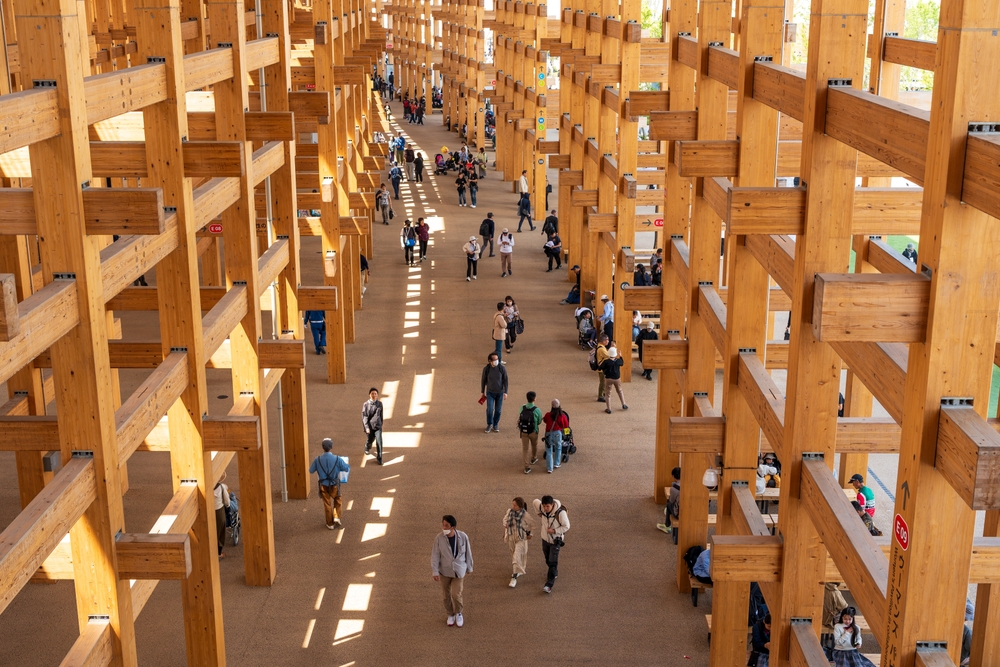End to end, Indonesia is as wide as the Atlantic Ocean from Europe to North America. An archipelago of 17,000 islands, a patchwork of peoples with cultural relics from Hinduism, Buddhism, Islam and Dutch rule, Indonesia offers natural and ethnic diversity that is rarely found elsewhere.
Potentially then, Indonesia should be at the forefront of Asia’s meetings and events industry. However, the 1990s economic crisis and political instability kept this country from developing as rapidly as it could have. Later, terrorism, by no means unique to Indonesia, captured world headlines and scared off visitors.
Today, Indonesia has weathered the recession better than many others. Sprawling upscale shopping malls testify to a surprising degree of domestic prosperity. The country is now politically stable and security is no longer top of mind.
Now, it seems the country is in a position to reach out to regional events.

The capital Jakarta has many surprises for event organisers unfamiliar with the country. There is a vibrant nightlife and warm friendly people that contradict the simplistic outsider views of this mainly Moslem nation. There are also a large number of deluxe hotels, upmarket bars and restaurants, a sizeable purpose-built venue in the shape of the Jakarta International Convention Centre and excellent air connections to all the main regional centres of Asia.
Indra Sukirno, director of the Jakarta Convention and Exhibition Bureau, says: “This year, we see that the current meetings situation in Jakarta has progressed so much compared to 2009. This is mainly due to the efforts that the government enforced in regards to combating terrorism, fighting against corruption and the affordable luxury products and services the destination offers.
New venues are coming up to accommodate the increasing demand of business events. To date, Jakarta has over 500 events booked at prominent venues, excluding other event activities held in malls and sports centres. Some have even attracted audiences of more than 50,000, with 1,000 coming from overseas, and have received world recognition, such as Inacraft, The Jakarta International Java Jazz Festival, the Jakarta Fair and so on.”
A sign of the capital’s recovery is the revival of the hotel sector. In 2008, the Hotel Indonesia reopened. The hotel has been a landmark for the city since the 1960s and was rebuilt and rebranded as the Hotel Indonesia Kempinski. The hotel’s grand ballroom is one of the largest in Indonesia and can hold events for up to 1,000 participants.
The Mandarin Oriental Jakarta, which sits opposite the Hotel Indonesia Kempinski, has likewise reinvented itself. A multi-million dollar revamp has resulted in larger but fewer rooms and some of the swishest meeting and function spaces in town.
The city is also home to major business hotels such as the Grand Hyatt, InterContinental, Le Méridien, The Mulia, The Borobodur, a JW Marriott and an adjoining The Ritz-Carlton. All these properties have substantial meeting space and deluxe accommodation for delegates.
One of the city’s finest hotels is the Dharmawangsa, a high-end property that serves specialised business events rather than larger-scale conferences or incentives.
Lira Dachlan, the Dharmawangsa’s public relations manager, says: “Our clientele profile for banquet inquiries comes more from the corporate meetings segment, as well as from companies booking private dinners and product launches.”
While Jakarta is essentially a business meetings and conferences city, the country’s second events destination, Bali offers a much wider range of experiences.
Labelled the “Island of the Gods”, the natural beauty of Bali combined with its Hindu culture and ambience makes it an ideal location for luxury incentives as well as teambuilding and corporate retreats.
Accommodation options include not only large international branded hotels, especially in the Nusa Dua area around the Bali International Convention Centre, but all manner of luxury villa properties and boutique hotels in areas such as Legian and Seminyak.
The island’s flexibility lends itself to any number of possibilities for meeting planners. It has also shown itself to be a popular choice for larger-scale international gatherings (see case study, page 48).
Nyoman Winatha, director of conference and events, InterContinental Bali Resort, says: “We have seen a great improvement in the booking of events and incentives in 2010. We are seeing a lot of interest in the resort for the remainder of the year and moving into 2011. It’s a very promising sign.”
The island also lends itself to creative uses of bars and restaurants, especially those events that can take advantage of the legendary Balinese sunsets.
Luxury hotel Anantara in Seminyak, for example, has recently created a new function space at its SOS rooftop bar, appropriately enough, SOS stands for Sunset on Seminyak.
While Jakarta and Bali are the two most important gateways, this sprawling country has many other centres that would be of interest for business groups.
Surabaya is the business centre of eastern Java, and with a new Garuda direct flight to Hong Kong starting in June alongside an existing Cathay Pacific one, the city is hoping to capitalise on both its business importance and its location. Bali is little more than an hour away by plane and Eastern Java has tremendous natural wonders such as the area around Mount Bromo.
Culturally, Central Java’s Yogyakarta has a great deal to offer and is also close to the ancient Buddhist temple complex of Borobodur.
Recently, the Indonesian government has tried to promote some of the more outlying regions as business events destinations. Obvious candidates are Manado in the Sulawesi Islands, and Lombok.
Manado is best known as a diving centre but it has also hosted some important international events, such as the World Ocean Conference in 2009.
Lombok has long been overshadowed by its neighbour Bali but many see this less commercialised and developed island as a worthy alternative to its larger neighbour. This year, a new international airport will open on Lombok, so its suitability for regional events may be worth reconsidering.
Last but by no means least is the island resort of Bintan. Closer to the Lion City of Singapore than Jakarta, Bintan established its reputation as an off-shore leisure destination for weekending Singaporeans. The island is connected by regular ferry services of just over an hour. With its golf courses, spas and meeting facilities, Bintan has also been a popular destination for the multinational companies headquartered in Singapore.
However, with Singapore’s massive investment in its integrated resort complexes, Resorts World Sentosa and Marina Bay Sands, the island will now have to work extra hard to keep the flow of meetings and teambuilding business it enjoyed in the past.

FAST FACTS
Access
There are direct flights into Jakarta’s Soekarno-Hatta International Airport and Bali’s Ngurah Rai International Airport from most of the key hubs in Asia-Pacific from the major carriers and some low-cost carriers. National flag-carrier Garuda is gradually reinstating a number of regional routes and has substantially upgraded its product.
Climate
Indonesia has a tropical climate appropriate to its proximity to the equator. Year-round temperatures average 31°C. High humidity can be expected during the Wet Season between October and April. The Dry Season between the months of May and September also have the lowest humidity.
Visa
Citizens of a number of Asian countries, particularly Asean member states, do not need visas. Visas on arrival are available at major airports, costing US$25 for stays of up to 30 days. If in doubt, check with your local Indonesian embassy or consulate.
Contact
The Ministry of Culture & Tourism of Indonesia
tel: 62 21 3838300
Jakarta Convention & Exhibition Bureau
email: director@jcneb.com
TOP TIPS
Indonesia recently changed its visa-on-arrival rules, so take that into account when costing your events. Asean passport holders are exempt but citizens of many other countries must pay US$25 for a visit of up to 30 days. Previously, short trips of less than a week were just US$10.
Jakarta’s traffic jams are notorious so either allow plenty of time for transfer between venues and airport or choose dinner venues within walking distance of the hotel or meeting place.
Since many of your delegates may be nervous about security issues, don’t shy away from the subject. Reassure them by stressing the high-profile security measures in place at all major hotels and venues in major Indonesian destinations.
Don’t just stick to the traditional displays of Indonesian culture, show the modern side of the country too. Don’t just use gamelan music groups. For example, the Indonesia’s danggdut music scene – heavily influenced by Arab and Bollywood styles – is lively and vibrant.
Choose a good local destination management company to work with, this will save time and money. Negotiating with local third-party suppliers can be a hassle if you don’t speak the language. A well brief DMC will guide you effectively.
THE PROFESSIONALS
Buaya Travel
email: renato@buayatravel.com
Pacific World
email: iblolec@pacificworld.com
Pacto-Convex
email: agusw@indosat.net.id
P T Asian Trails Indonesia
email: info@asiantrailsbali.com
Wita Tours
email: witatour@cbn.net.id
EARTH DAYS
Bali hosted a major scientific congress on geothermal energy in April
Volcanic activity has been in the news quite a bit recently, shutting down European airspace for almost a week in April.
All this is testament to the awesome power that lies just beneath the earth’s crust. But this tremendous energy can also be harnessed in positive ways, specifically when that energy creates heat that can be utilised on the surface.
Another important factor is that the recent speculation in oil markets led to widely fluctuating prices on the international scene. Concerns about the safety of nuclear power are also widespread in many countries. So utilising the power of the earth itself seems a sensible and environmentally friendly means of energy production.
The World Geothermal Congress and Exhibition 2010 met at the Bali International Convention Centre (BICC) in Nusa Dua in April, bringing together experts from business, science and governments to exchange the latest information on this field.
According to Dr Herman Darnel Ibrahim, chairman of the congress’ organising committee, the World Geothermal Congress 2010 (WGC2010) is held every five years and has been organised by the International Geothermal Association (IGA) since 1995.
Previous congresses were held in Florence, Italy in 1995, Bepu, Japan in 2000 and Antalya, Turkey in 2005. The congress is a forum for scientists, experts, industrial players, developers, operators and regulators of the geothermal business, as well as for business players related to the geothermal business.
The IGA organises the congress to bring together the best minds in the sector. Around 2,500 delegates attended the Bali event from around 80 countries.
To encourage sustainability in practice – one of the key themes of geothermal power, delegates were encouraged to dispose of any unused pens, papers or other materials with their conference satchels at a special counter at
the congress. The satchels and any reusable items were then given to local schools for children to use. An act in support of education that would appeal to many among the delegates.
Dr Ir Surya Darma, the president of Indonesian Geothermal Association (INAGA), said: “The theme of ‘Geothermal: The Energy to Change the World’ was deliberately chosen since the geothermal power is proven to be environmental friendly and provide benefits not only for Indonesia, but also for the rest of the world. Geothermal can be a reliable alternative energy source that could change the world, which is now facing global warming problems. This conference will encourage more people in the world to use geothermal as an environmentally friendly and renewable energy source.”
The conference and exhibition were also supported by a number of private companies. Chevron and Star Energy were the leading sponsors, and Pertamina Geothermal Energy, PT PLN (Persero), Ormat Technologies, Energy Development Corporation, Medco Energi, Itochu, and Halliburton were the supporting sponsors.
The event demanded a great deal of work and attention to detail. There were a total of 650 papers be presented orally in 131 parallel sessions within the five days of the
congress. Another 379 papers were presented in poster sessions. On top of this, the exhibition comprised 81 booths from 85 companies.
Rainata Tjoa, marketing communication director of the Westin Resort Nusa Dua Bali, in preparation for the WGC2010, says the team at the BICC conducted a series of pre-event meetings with event organiser Pacto Convex to ensure all arrangements were carried out as planned.
“We believe that communication and coordination within our internal teams together with the organising team played a vital part in the overall success of the event.”
Her points were echoed by Bipan Kapur, general manager of The Westin Resort Nusa Dua, Bali and BICC.
“We are extremely proud to be trusted by the IGA and INAGA to host such a prestigious event. We are very please that everything ran exceedingly well and we hope that all delegates left the island with an enriching Bali experience that will encourage them to return again soon for business or leisure.”
The island’s rich culture was showcased in different parts of the programme and Bali’s status as an internationally known destination was a drawing card for many participants.
Hotel, convention centre and event organiser's efforts were well appreciated.
R Gordon Bloomquist, chairman of the WGC2010 steering committee, says: “We as an industry and community have a great deal to thank our Indonesian host for their planning and organisational skills, and their hospitality have made coming to Bali a pleasant and very rewarding experience for all in attendance. The number of participants was a tremendous show of the interest in and the strength of our commitment to geothermal development. Attendance at plenary and technical sessions was excellent, interest in the exhibits was high and participation in the many social and cultural events outstanding.”
After the conference, delegates were able to take advantage of Indonesia’s varied geothermal terrain to make field trips to West Java. There were two options, the first to Bandung and the second to Wayang Windu, site of the biggest geothermal power plant in Indonesia.


